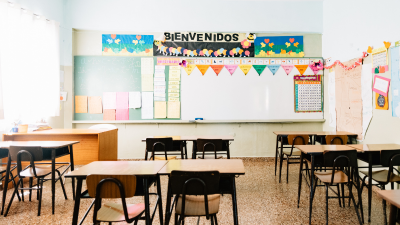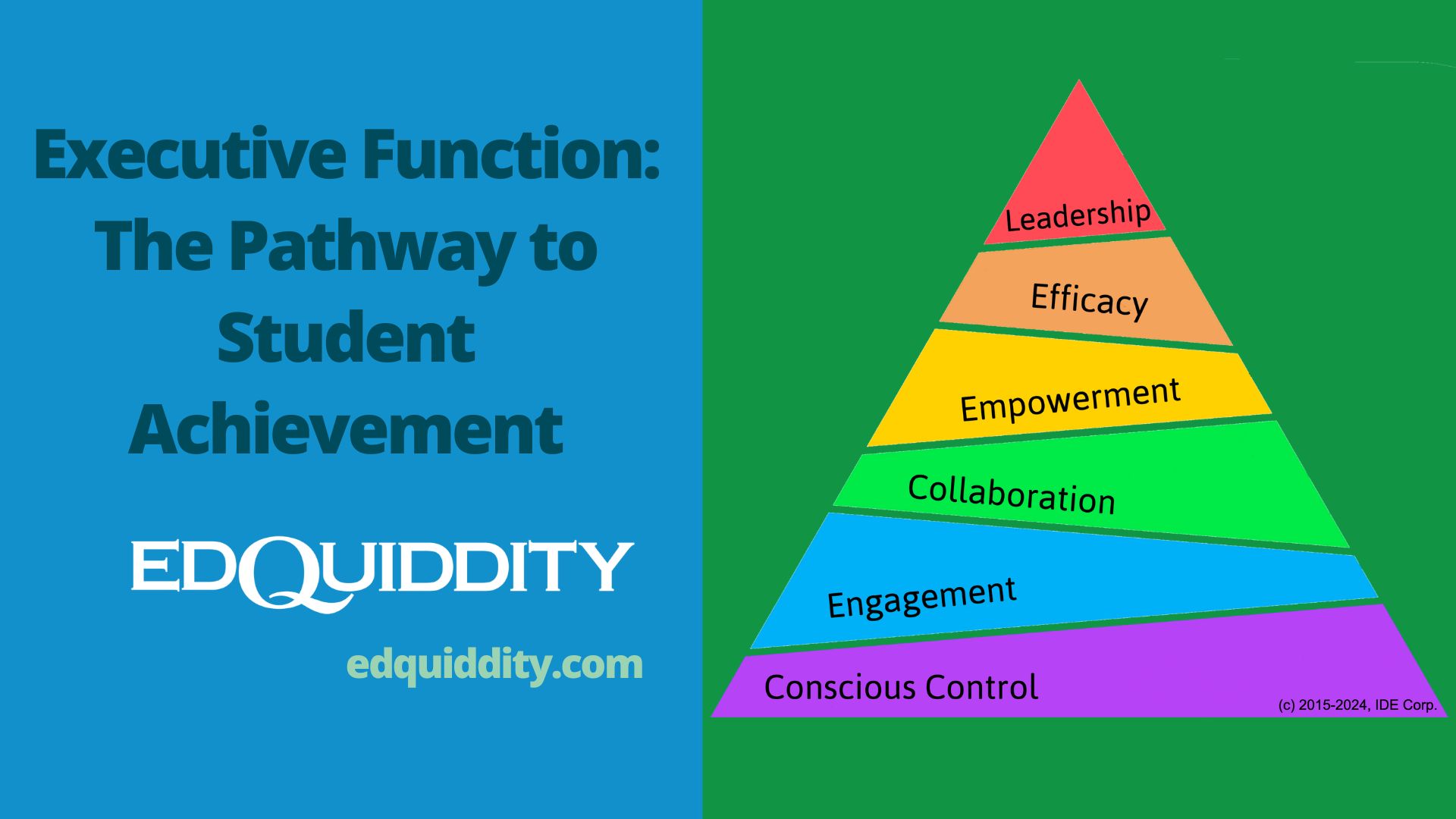Developing Executive Function in Classrooms
As Dr. Nancy Sulla states, “imagine if you could flip a switch for students and have them experience academic success, emotional wellness, strong social interactions, and solid behavioral habits. Sounds like an educator’s dream come true! Well, it’s not that far-fetched.” That powerful light switch is executive function. It is the basis, and thus, the fuel, for achieving all of these goals and more. It is the link that holds all of your instructional goals together! Schools seek methods to bolster academic performance, yet the bridge to success lies in enhancing executive function skills. To prepare students beyond the classroom walls, we need to ensure that students possess key life skills that allow them to grapple, not only with academic content, but also with organizing tasks, managing time effectively, and regulating their emotions — all integral components of executive function. By addressing this missing link, we can unlock a path to unparalleled student achievement. Our Professional Learning Experience (PLE) on executive function equips teachers with structures and strategies to foster executive function within their classrooms.

The Key to Academic Triumph
Executive function encompasses a set of cognitive skills that enable individuals to manage tasks, regulate emotions, and achieve goals effectively. Reference the image below that highlights the 40 key executive function skills. Contact us today for a full version of this list.
A common misconception is that students already possess these skills, or that executive function is an additional task that teachers need to teach in the classroom. Both of those beliefs are false. Executive function skills are developed in the prefrontal cortex of the brain, and represent a skill set that children are not born with. Rather, these skills are developed over time, from ages 4 to 30, and beyond. Executive function serves as the conductor orchestrating various mental processes, including planning, reasoning, and problem solving. Additionally, executive function intertwines with emotions, as emotional regulation plays a pivotal role in decision making and behavior control. In essence, fostering executive function equips students with the tools to navigate academic challenges and thrive emotionally.
Developing executive function skills is not a one-size-fits-all endeavor; instead, it requires a multifaceted approach tailored to individual needs. There are ways in which teachers can build the prefrontal cortex of the brain through their instructional practices instead of addressing executive function as a separate section or class period. To foster these skills in the classroom, educators can employ various techniques, such as collaborative learning, goal-setting, mindfulness practices, reflection, and much more.

Empowering Educators in Student Achievement
In recognition of the pivotal role executive function plays in academic achievement, we are excited to introduce our latest offering: the Executive Function: The Pathway to Student Achievement Professional Learning Experience (PLE). Designed for school-wide implementation, this comprehensive program delves into structures and strategies to nurture the six levels of executive function skills (pictured below): conscious control, engagement, collaboration, empowerment, efficacy, and leadership. By equipping educators with the tools and knowledge to develop this skill set in the classroom, we aim to empower students to excel, not only in school, but also in life.
Take Action Today: Enroll Your Staff in Our Executive Function PLE
Don’t let executive function remain the missing link in your quest for student achievement. Contact us today to enroll your staff in our executive function PLE, and embark on a transformative journey toward unlocking the full potential of your students. Enroll your district today for $99 per person for 2 years of engagement. Together, let’s pave the way for academic success and emotional well-being in the classroom and beyond.


 In this course, participants will leverage choice and technology to provide students with the ultimate differentiated learning environment. They will develop differentiated digital activity lists rooted in rigorous instruction that offer multiple ways to learn and apply content. Participants will explore autonomy, purpose, and mastery as motivators in all learning environments. They will design differentiated activity lists to put students in charge of their own learning, creating a structure that allows students to make decisions within a structured framework. Making informed decisions is an essential life skill that teachers can support with intentional classroom practices.
In this course, participants will leverage choice and technology to provide students with the ultimate differentiated learning environment. They will develop differentiated digital activity lists rooted in rigorous instruction that offer multiple ways to learn and apply content. Participants will explore autonomy, purpose, and mastery as motivators in all learning environments. They will design differentiated activity lists to put students in charge of their own learning, creating a structure that allows students to make decisions within a structured framework. Making informed decisions is an essential life skill that teachers can support with intentional classroom practices. Participants in this course will use Reinventing the Classroom Experience by Dr. Nancy Sulla as a resource. The assigned book must be
Participants in this course will use Reinventing the Classroom Experience by Dr. Nancy Sulla as a resource. The assigned book must be